Houston Weather: Heat safety tips from the National Weather Service
HOUSTON - On Day 1 of Severe Weather Awareness Week, the Houston/Galveston Office of the National Weather Service wants to remind residents about heat safety.
MORE: National Weather Service to shares safety tips all week-long for Severe Weather Awareness Week
Unfortunately, heat is the leading cause of weather-related deaths in the United States.
The CDC reports over 600 heat-related deaths per year. In fact, 38 children die each year on average from being left in a hot vehicle. So never forget to check your back seat to ensure you don’t leave kids or pets in your vehicle.
Download the FOX 26 Houston Weather App
Temperatures will be on the increase over the next several months. Outdoor plans will likely be on your priority list so make sure to practice heat safety!
Heat Hacks: Tips & Tricks to keep your house cool
Viral posts promise to help keep your house cool, but what is the most effective technique for keeping your air conditioner running properly? The experts at John Moore Services show us tips and tricks to help cool your house.
Children, elderly individuals, and those with chronic illnesses are especially vulnerable to heat exposure.
- NEVER leave any people or pets alone in a locked car.
- Monitor people exercising or playing sports, ensuring frequent breaks.
- Bring water to outdoor activities with others to keep everyone hydrated.
- Learn the signs of heat-related illnesses on the NWS' website.
MORE: Heat safety tips from Texas Parks and Wildlife
HEAT-RELATED ILLNESS:
Learn the symptoms of excessive heat exposure and the appropriate responses.
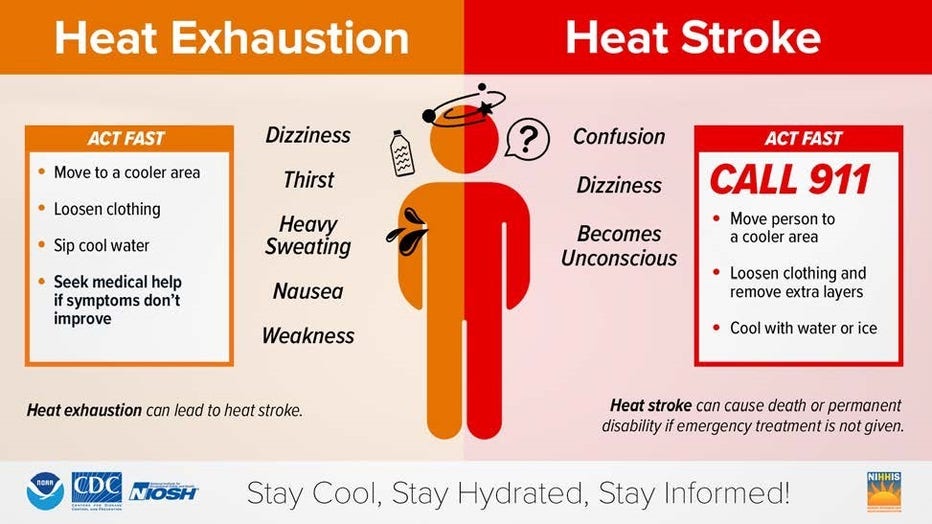
(Photo courtesy of National Weather Service)
Heat is the leading cause of weather-related fatalities each year. A heat wave is a period of abnormally hot and sometimes humid weather, generally lasting more than a couple of days.
Heat waves have the potential to cover a large area, exposing a high number of people to a hazardous combination of heat and humidity, which can be very taxing on the body. During a heat wave, stay indoors in air conditioning.
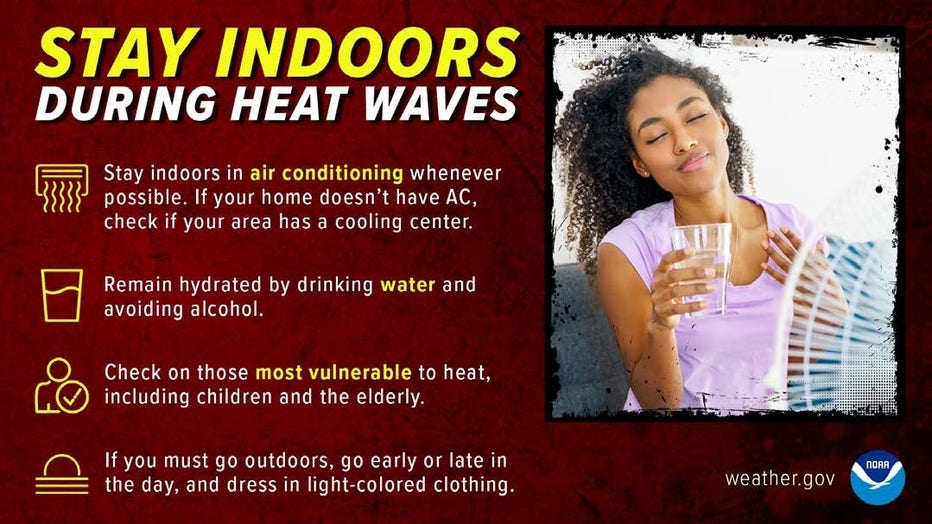
(Photo courtesy of National Weather Service)
We all know how hot it can get in Houston, so it's important to know how to protect yourself and others from the dangers of excessive heat.
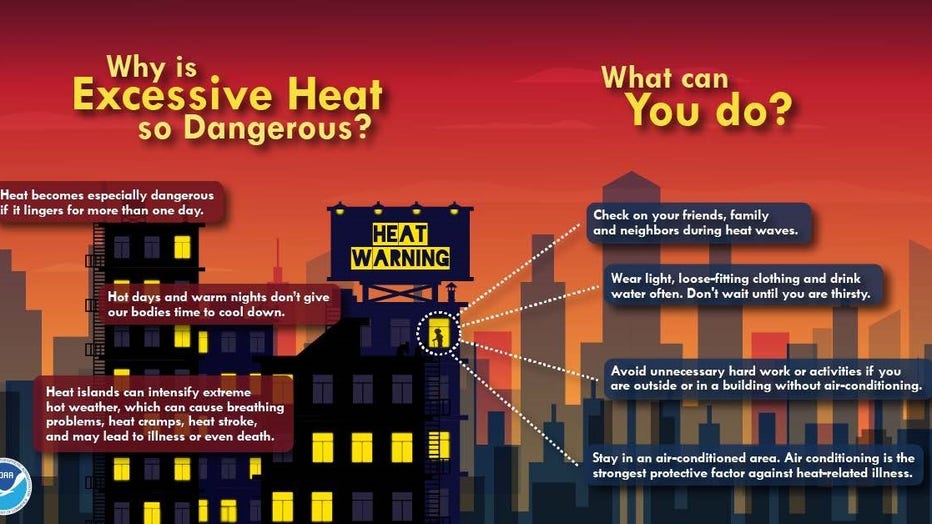
(Photo courtesy of National Weather Service)
In large cities, dark pavement and buildings are very effective at absorbing heat which leads to warmer nights. So even at night, it's important to remember to keep safe from the excess heat.
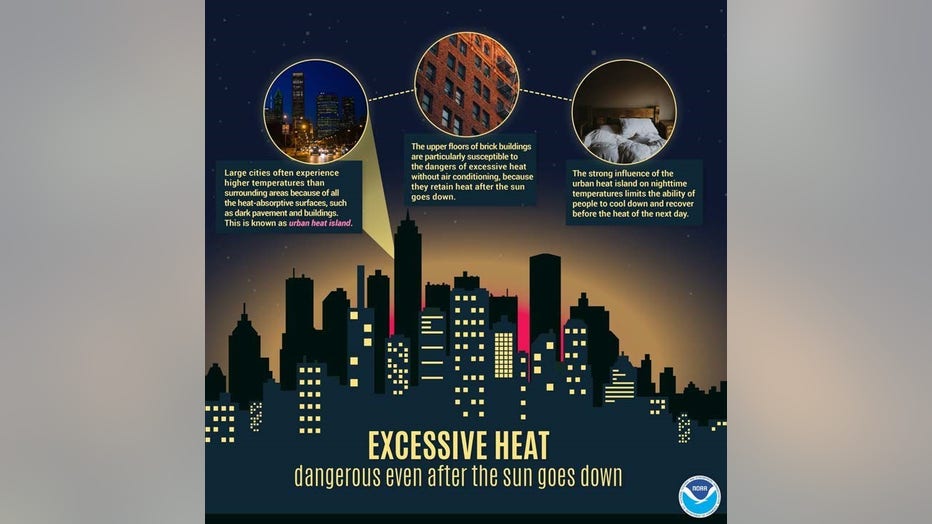
(Photo courtesy of National Weather Service)
OUTDOOR ACTIVITIES
Being outside for extended periods of time in the heat can put you at risk of heat exhaustion or heat stroke. The NWS says you should consider the following when working outdoors:
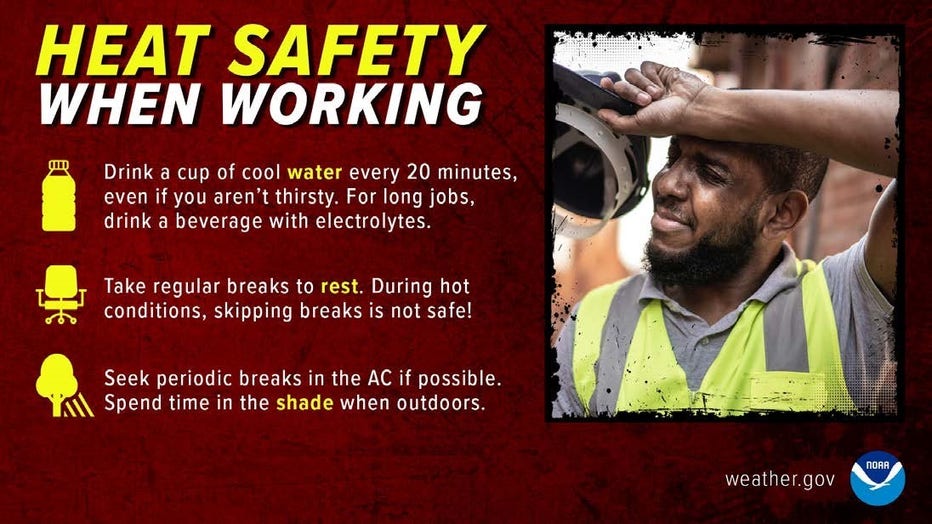
(Photo courtesy of National Weather Service)
When outdoors in the heat, wear lightweight, loose-fitting, and light-colored clothing to reflect heat and sunlight.
STAY TUNED IN WITH YOUR GULF COAST WEATHER AUTHORITY
If you will be spending time outdoors, hats are also a good idea to protect your face and scalp from harmful UV rays. Also, don’t forget to apply sunscreen liberally.
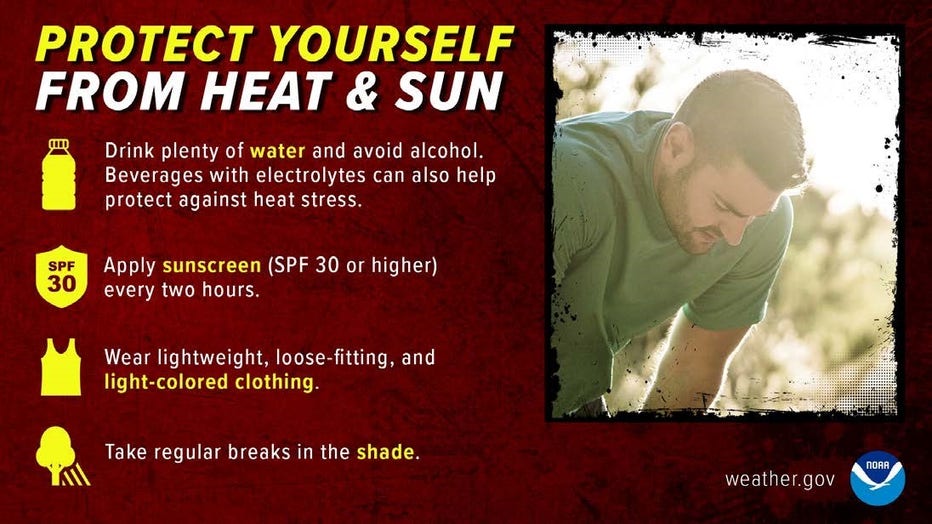
(Photo courtesy of National Weather Service)
CAR AND PET SAFETY
On average, the NWS reports that 38 children die each year from being left in a hot vehicle. Children should NEVER be left in a car, no matter the time of year. Vehicular heatstroke has occurred when outside temperatures are below 70 °F - sunlight can cause the inside of a car to heat up VERY quickly.
RELATED: Scorching temperatures raise concern for children left in cars
Over 900 children have died inside hot vehicles since 1998. Some of these tragedies were due to children accessing a parked car without supervision. Always lock parked cars, even if you are not a caregiver.
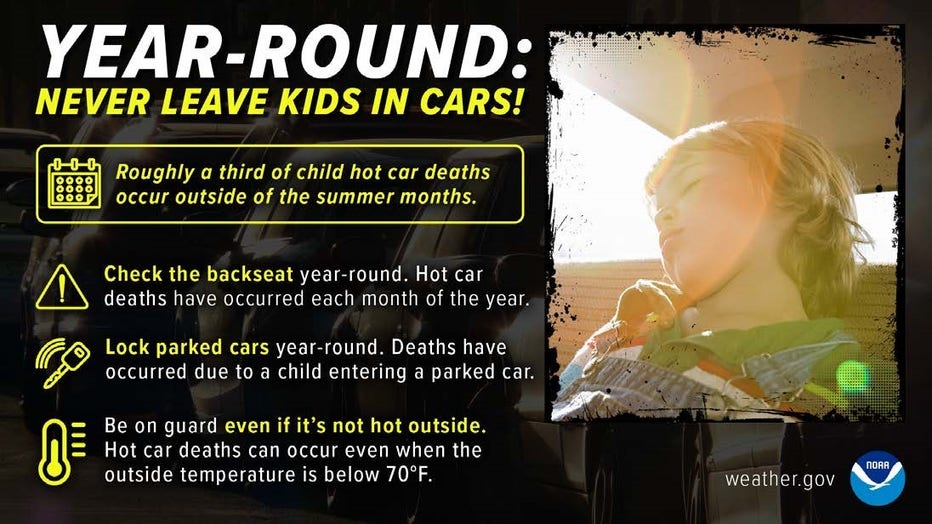
(Photo courtesy of National Weather Service)
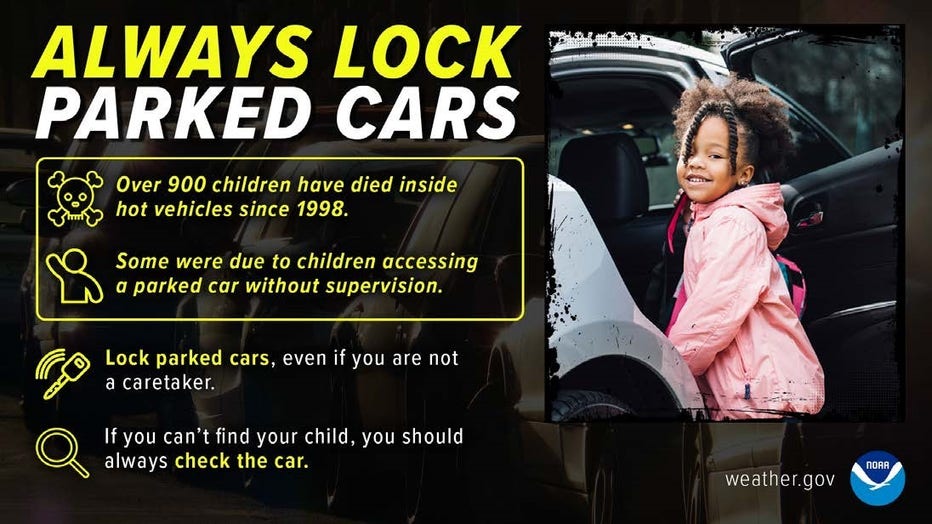
(Photo courtesy of National Weather Service)
Heat Safety Strategies
Everyone operates on autopilot once in a while. Caregivers should have a strategy to ensure that no one is ever forgotten in hot cars.
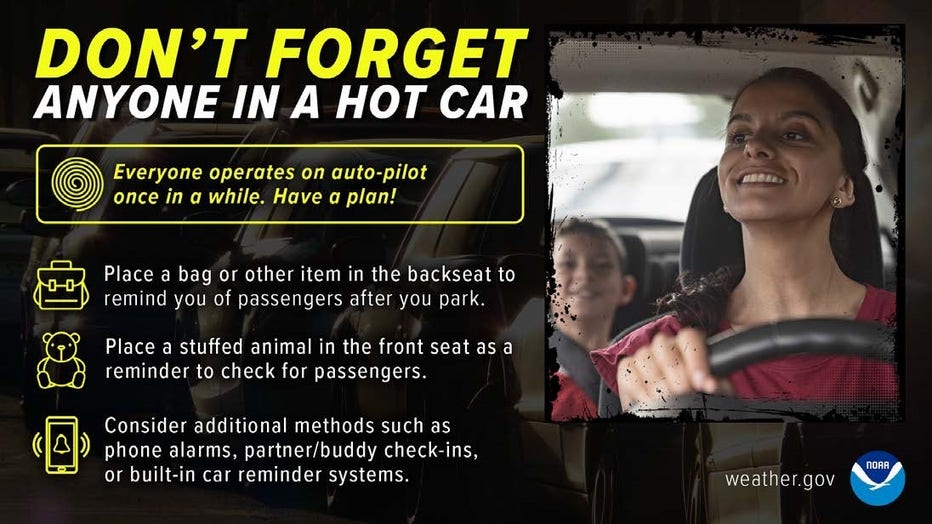
(Photo courtesy of National Weather Service)
Don’t forget to check your back seat for your pets! Please do not leave your pets locked in a hot vehicle. Animals can die of heatstroke within 15 minutes.
MORE: Houston dog owners talk protecting pets in the summer heat
Check your back seat to make sure you don’t leave kids or pets in your vehicle.
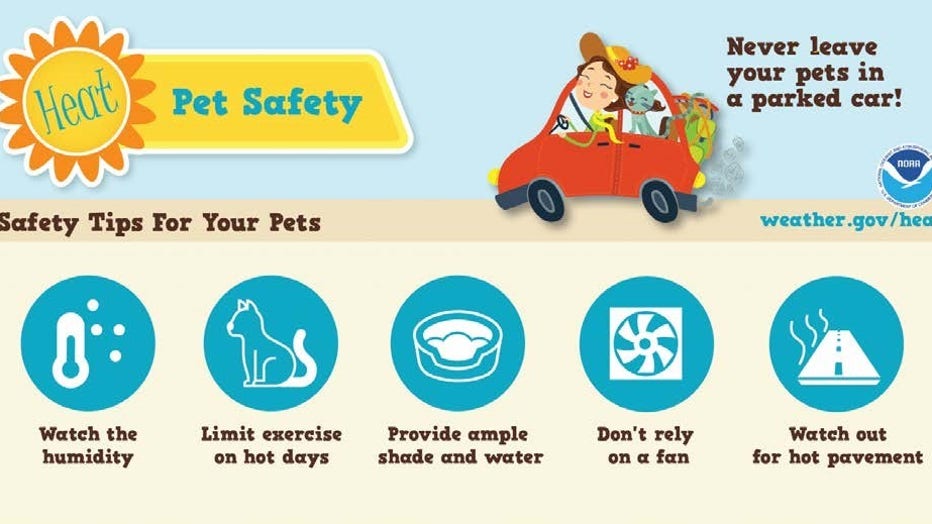
(Photo courtesy of National Weather Service)
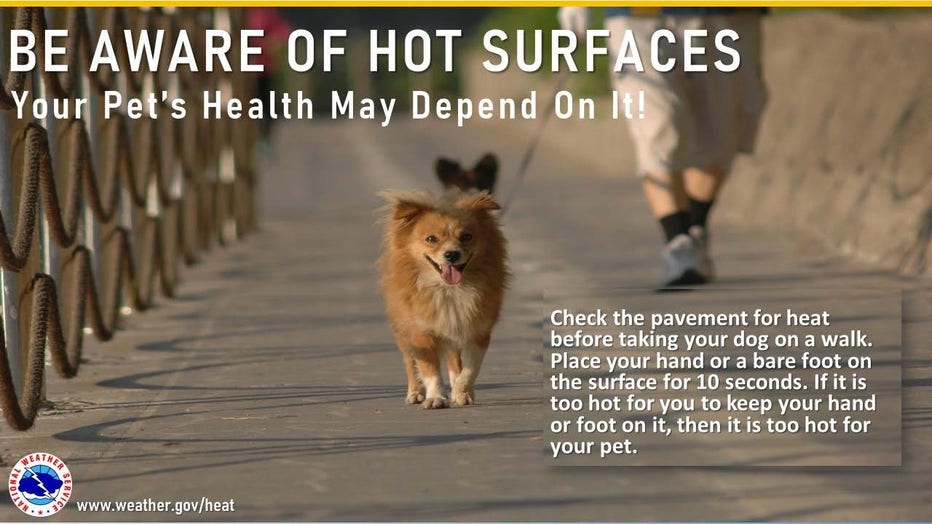
(Photo courtesy of National Weather Service)
HELPING OTHERS
Everyone is at risk from the dangers of extreme heat, but these groups are more vulnerable than most. Ensure that your loved ones and neighbors are safe from the heat and remain Weather-Ready.

